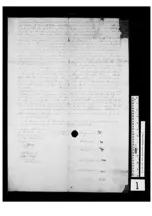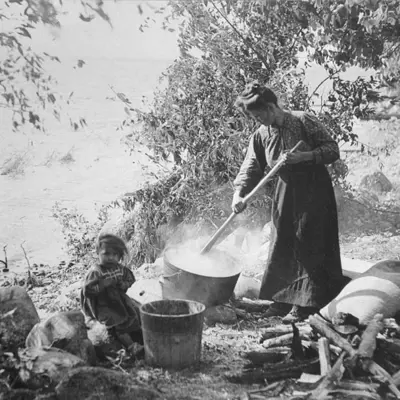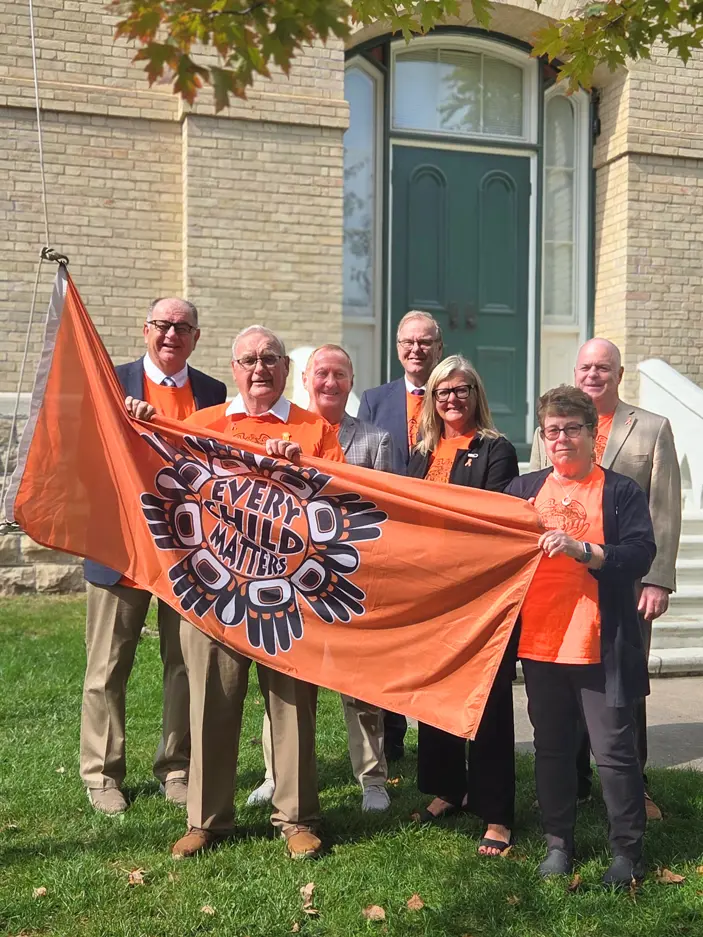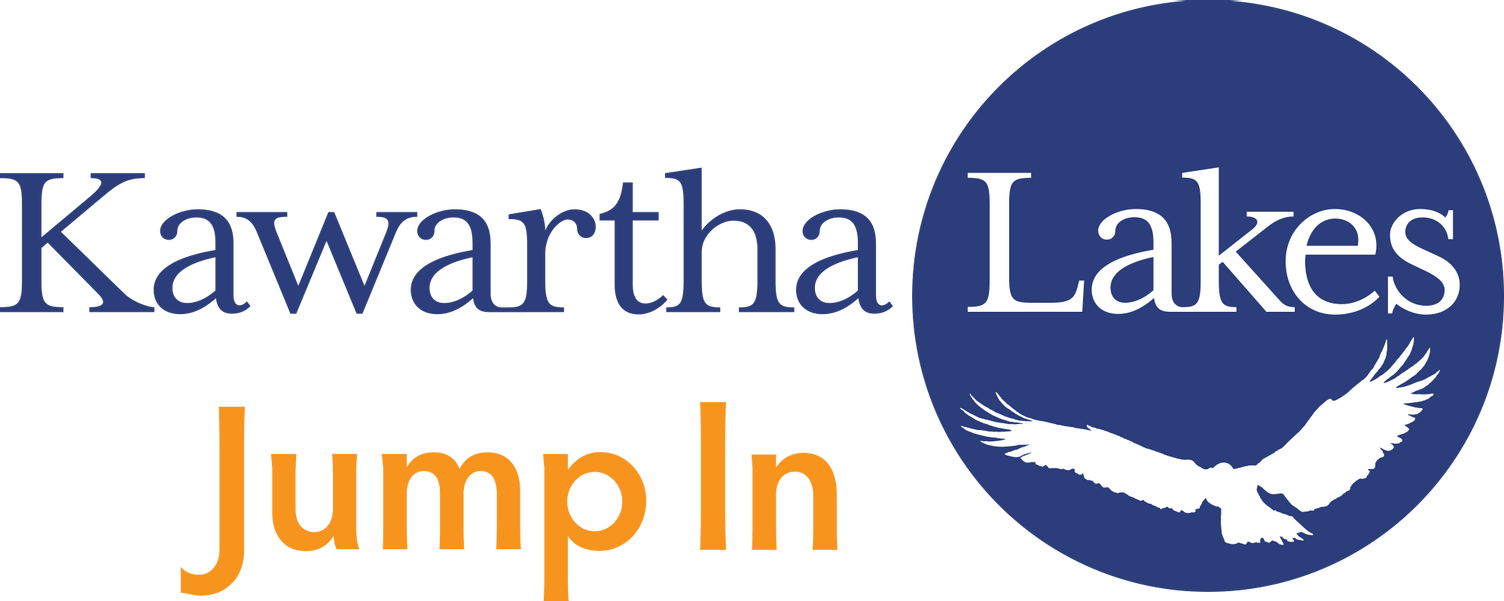Indigenous Communities
The City of Kawartha Lakes respectfully acknowledges that we are situated on Mississauga lands and the traditional territory covered by the Williams Treaties.
We are grateful for the opportunity to work here and we thank all the generations of people who have taken care of this land – for thousands of years. We recognize and deeply appreciate their historic connection to this place. We also recognize the contributions of Métis, Inuit, and other Indigenous peoples, both in shaping and strengthening this community and country as a whole. This recognition is connected to our collective commitment to make the promise and the challenge of Truth and Reconciliation real in our community.

The area which includes what is now the City of Kawartha Lakes has been home to and sustained Indigenous people for over 10,000 years. The territories we are located in are the traditional territories of the Michi Saagiig who have lived here for generations.
Throughout history, the Michi Saagiig have lived here, and have allowed other Indigenous communities to live here as well, including the Huron-Wendat who had established agricultural settlements in this region around the time that French explorers first traveled through this region of Ontario.
In the early nineteenth century, the colonial government of Upper Canada wanted to open this area for non-Indigenous settlement as increasing number of immigrants from both Britain and the United States were arriving in the province. In 1818, the Rice Lake Treaty, or Treaty 20, was made between the Michi Saagiig and the colonial government of Upper Canada at Port Hope which ceded 1,951,000 acres of land for non-Indigenous settlement. This included the majority of what is now Kawartha Lakes.

Indigenous families were moved to reserves and their ability to hunt, fish and harvest was severely limited by increasing non-Indigenous settlement and animosity towards Indigenous rights. By the end of the nineteenth century, non-Indigenous settlers had also been settled on land that was not formally surrendered and Indigenous communities spent many years requesting redress from the federal government. In 1923, the federal government signed two new treaties with the three Chippewa and four Michi Saagiig communities who resided in this region of central Ontario. These treaties were known as the Williams Treaties and, unlike most other treaties, extinguished Indigenous harvesting rights off reserve.
The Williams Treaties harvesting provisions were challenged in the courts throughout the twentieth century. A final settlement was not reached between the federal government and the Williams Treaties First Nations until 2018.
Indigenous Communities Today
There are seven contemporary Indigenous signatory communities to the Williams Treaties. They are:
Alderville First Nation
Beausoliel First Nation
Chippewas of Georgina Island First Nation
Chippewas of Rama First Nation
Curve Lake First Nation
Hiawatha First Nation
Mississaugas of Scugog Island First Nation
We encourage you to visit these communities to learn more about Indigenous people and culture in our region.
Kawartha Lakes is also home to other First Nations and Métis people who are integral parts of the history of our communities.

Our Policies
Kawartha Lakes is committed to working with and consulting Indigenous communities and to ensuring that Indigenous culture and people are recognized, involved and celebrated in the work that we do.
- First Nations Land Acknowledgement Policy
- First Nations Consultation Policy
- First Nations Repatriation Policy
- First Nations Education Policy
Resources
For more information on Truth and Reconciliation, please visit:
Truth and Reconciliation Community Bobcaygeon
National Centre for Truth and Reconciliation
Explanatory Note: The policies on this page reference the City of Kawartha Lakes' commitment to advancing reconciliation with Aboriginal peoples in Canada. An important aspect of our commitment to genuine reconciliation is ensuring accuracy in recognizing Indigenous people with Aboriginal rights and/or interests in our community. In this context, it is vital to clarify that the term "First Nations" as used in these policies does not include the group who refer to themselves as "Kawartha Lakes First Nation" or the "Assembly of Kawartha First Nation". The City of Kawartha Lakes does not acknowledge this group as a First Nation or as an Aboriginal people. They have not been recognized as a First Nation by the federal government, nor has this group been identified as a collective whose identity as Aboriginal people and Constitutional rights-holders have been affirmed by the courts. This group also lacks any connection to a historical Indigenous community in Kawartha Lakes. Acknowledging entities that falsely claim Indigenous status undermines the process of reconciliation and does a disservice to legitimate rights holders. City of Kawartha Lakes is actively involved in ongoing consultations and engagement with Aboriginal and treaty right holders in the region, including the Williams Treaties First Nations. For reference, view a list of Ontario-based First Nations federally recognized.
Public Notice issued by the Williams Treaties First Nations - April 2024, download PDF
Contact Us
Kawartha Lakes
P.O. Box 9000, 26 Francis Street
Lindsay, ON, K9V 5R8
Telephone: 705-324-9411
Toll free at 1-888-822-2225
After-hours emergencies: 1-877-885-7337




